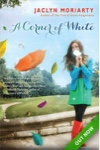Today my nephew Max turns eighteen, so I'm doing a February 27 meme in his honour. Max is a musician, a composer, an artist and animator - and he's still at high school! I'm terribly proud of him.
So happy birthday, Max, and here are some things that happened On This Day in history. Please note, I chose the most appropriate birthdays for this blog, so there are a lot I left out, but you should note it's also the birthday of Roman Emperor Constantine.
Birthdays
1807 - Henry Wadsworth Longfellow - Best known for the poem Song Of Hiawatha. Lesser known is that he did a translation of Dante's Divine Comedy from the Italian.
1902 - John Steinbeck - author of some of the most gorgeous prose out there. Of Mice And Men. The Grapes Of Wrath. Sad stuff, both of them. I had to teach Grapes Of Wrath to Year 12 in my first year out. If these two don't make you cry, you have no heart. Also lighter gentler stuff like Cannery Row. And he did an unfinished book about King Arthur which I haven't managed to get hold of.
1966 - Bill Oakley, who writes for The Simpsons. He was inspired by Mad Magazine as a teen, which says something about his writing. Happy birthday, Bill!
I know Max would like to know where he stands in music history.
In 1827, there was the first New Orleans Mardi Gras On This Day. There would have been a lot of music there!
And one major music birthday: 1943 - Jimmy Burns, guitarist, composer, singer, superstar of soul and electric blues. Happy birthday, Jimmy!
Actors:
1847 - Ellen Terry, Shakespearean superstar. It didn't mention this in Wikipedia, but I believe she was one of the children photographed by Charles Dodgson, aka Lewis Carroll, and exchanged a lot of letters with him later. She was performing right into old age and made at least one silent movie.
1892 - William Demarest, who was in about 100 films, including The Jazz Singer, the first sound movie.
1932 - Dame Elizabeth Taylor, star of many movies. I remember her most fondly in Franco Zefirelli's version of The Taming Of The Shrew. She was stunning in her time - but she could really act, shown by those movies in which she had to be frumpy and middle aged and still performed brilliantly. She didn't need her beauty to show her at her best.
1957 - Timothy Spall. You and I know him best as Wormtail in the Harry Potter movies, but he's been in the Royal Shakespeare Company in his time and he's done plenty of other films and TV shows(Red Dwarf season 5, "Back To Reality", as the mechanic who tells the Dwarfers they've been playing an immersion video game for five years). I haven't yet seen Mr Turner, in which he plays the artist William Turner, but would like to.
Today is International Polar Bear Day, created to raise awareness of the impact of global warming on polar bears, due to the melting of sea ice. It encourages us to reduce our carbon footprints.
Today is also the Yartzeit of Star Trek actor Leonard Nimoy. Rest peacefully, Leonard!











